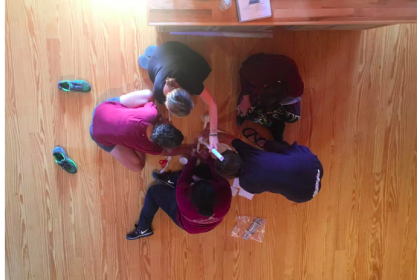
This post was originally published on the Interaction Institute for Social Change blog by Curtis Ogden on October 2, 2017.
“We cannot live for ourselves alone. Our lives are connected by a thousand invisible threads, and along those sympathetic fibers, our actions run as causes and return to us as results.”
– Herman Melville
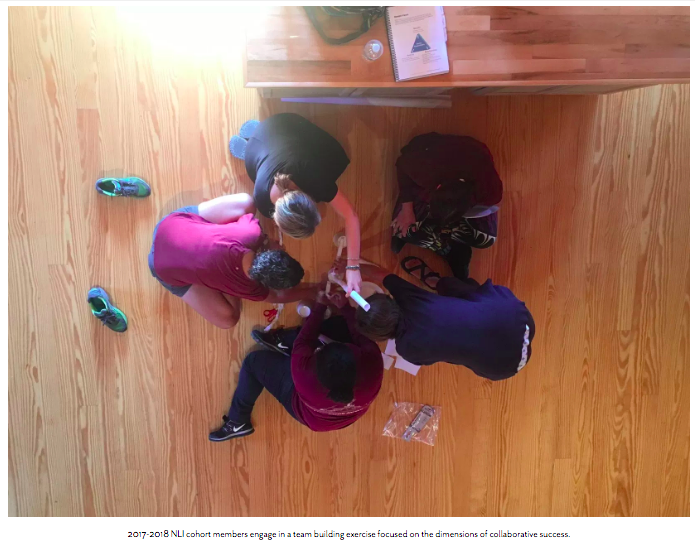
Last week I worked with the Backbone Team of Food Solutions New England (FSNE) to launch the second cohort of the Network Leadership Institute (NLI) at Ohana Camp in Fairlee, Vermont. This initiative has grown out of FSNE’s commitment to cultivating both thought leadership and network leadership “to support the emergence and viability of a New England food system that is a driver of healthy food for all, racial equity, sustainable farming and fishing, and thriving communities.” Another impetus for the NLI was a year spent doing system mapping and analysis that revealed four leverage areas for advancing a just, sustainable and democratically-owned and operated regional food system, including cultivating and connecting leadership (see image below).
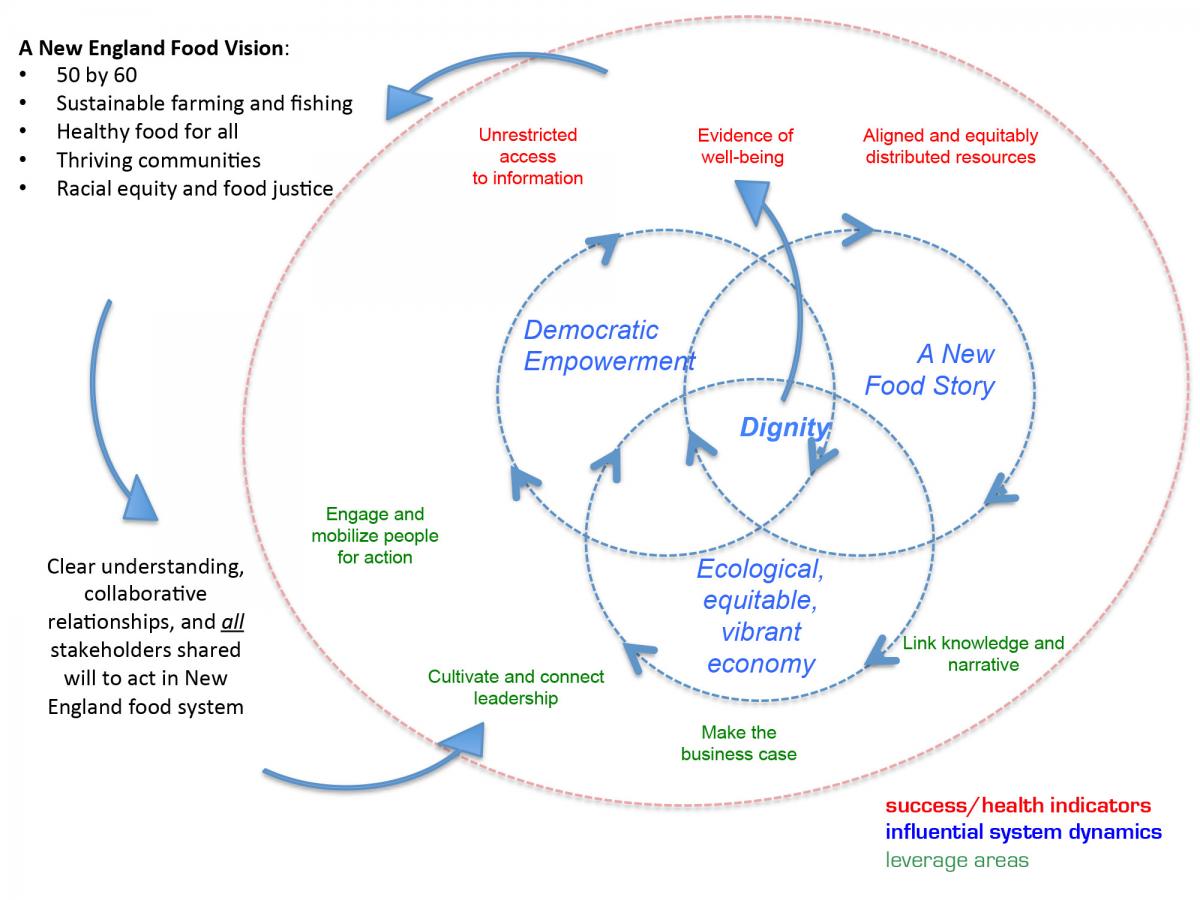
“Value is created when people are connected and trust what’s going on.”
– Seth Godin
As was the case last year, the 2017-2018 cohort was selected with overall geographic, cultural/racial and sectoral diversity in mind. All of the participants are active in food system efforts at the local, state, and/or regional levels, committed to FSNE’s values and eager to contribute to the advancement of the FSNE network and its core strategies.
Design of the NLI has been guided by a few high level learning objectives and desired outcomes:
- Greater connectivity among a cohort of food system leaders and between the cohort and the broader FSNE network
- Greater facility with collaborative and network leadership, systems thinking, stakeholder engagement and work for inclusion and racial equity
- Shared understanding of the emerging food system and FSNE’s strategy for advancing the New England Food Vision (“50 by 60”)
- Greater understanding among participants for how to use the network to advance their work
Based on feedback from last year’s inaugural cohort, this year’s NLI makes more structured time for participants to learn about one another’s work, and also has more spaciousness overall for people to absorb whatever aspect of the program in which we happen to be engaged. In addition, thanks to both popular demand and more generous funding, the NLI has added an additional two days.
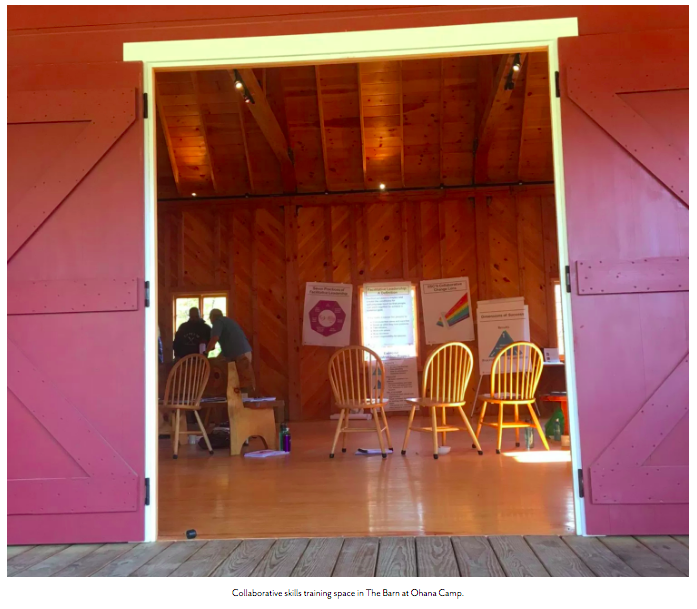
“Long-term prosperity is primarily a function of healthy human webs.”
– Dr. Sally J. Goerner, The Capital Institute
With respect to the curriculum, emphasis is on six primary strands of activity with more emphasis this year on the last strand in light of circumstances in our country and world:
- Creating and deepening relationships among the cohort (through storytelling, circle time, one-on-ones, informal hang out time, etc.), with the assumption is that will form the most solid foundation for personal development and aligned action towards the Vision.
- Developing and honing practical skills including systems thinking and analysis, facilitation, process design, coaching, collaborative decision-making, public engagement strategies, evaluation of collaborative efforts, etc.
- Meeting with and learning from other diverse leaders in the food system to hear about challenges and successes (our first session featured leaders from some of the region’s innovative initiatives including Farm to Institution New England, Land for Good, New England Grassroots Environment Fund, and Migrant Justice, which just won a landmark victory for farm workers with its Milk With Dignity campaign)
- Doing field visits to places of relevance in both rural and urban settings (a micro-creamery, a community and teaching kitchen, etc.)
- Deepening familiarity with both the FSNE network and its change strategies so that participants can align with, support and join these efforts
- Cultivating personal wholeness and wellness practices to sustain individual and collective work for food system transformation (contemplation/meditation, time in nature, play, art, etc.)
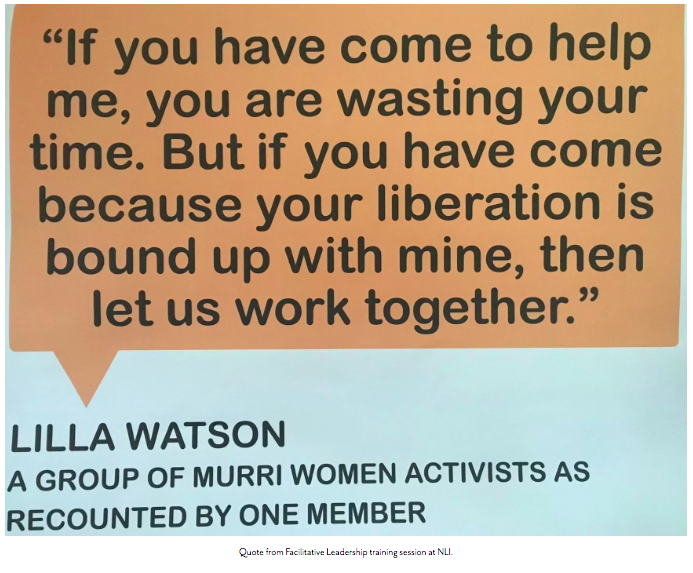
During our session last week, we got into fundamental questions of access, inclusion, ownership, and equity in food systems. These discussions were sparked by the quote above and inquiry into what it would take to counter patterns of “othering” and create a greater inclusive belonging in our region through and around food (this was echoed in one of the assigned pre-readings for the first session – “Equity as Common Cause”). We have come to see the cohort itself is a community of practice around cultivating belonging.
“While Othering processes marginalize people on the basis of perceived group differences, Belonging confers the privileges of membership in a community, including the care and concern of other members. As powell has previously written, ‘Belonging means more than just being seen. Belonging entails having a meaningful voice and the opportunity to participate in the design of social and cultural structures. Belonging means having the right to contribute to, and make demands on, society and political institutions.’”
–Andrew Grant-Thomas, from Othering and Belonging Editors’ Introduction
During our next session in November on Thompson Island in the Boston Harbor Islands, we will deepen our exploration of equity, belonging, networks and network leadership as a basic requirement for food system change, working with the following definition:
Network leadership operates from the understanding that connection is fundamental and that the nature and pattern of connection in a system underlie its state of health (including justice, prosperity and resilience). Network leadership strives to understand, shift and strengthen connectivity; facilitate alignment and resource flows; and create conditions for coordinated and emergent action in the direction of greater health and belonging at different systemic levels.
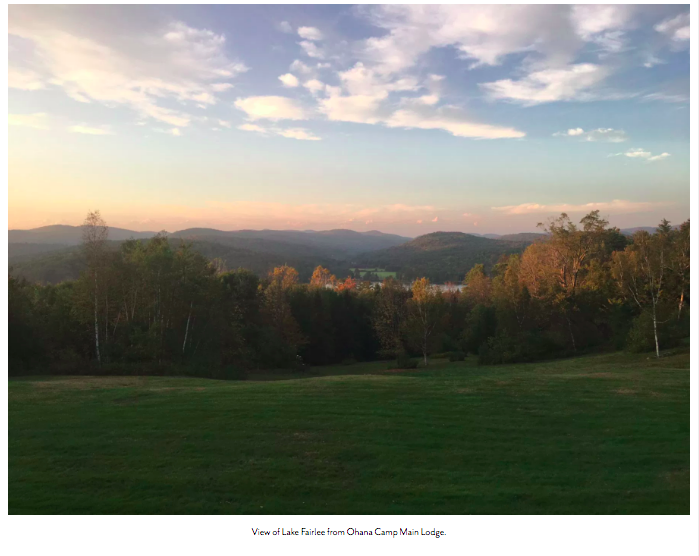
Curtis Ogden is a Senior Associate with the Interaction Institute for Social Change (IISC), on the advisory board of EmbraceRace and a member of the Research Alliance for Regenerative Economics. He is facilitator for the Food Solutions New England Process and Network Teams and supports a variety of food system-focused networks through his work at IISC. Curtis lives in Amherst, MA with his wife and three daughters.




